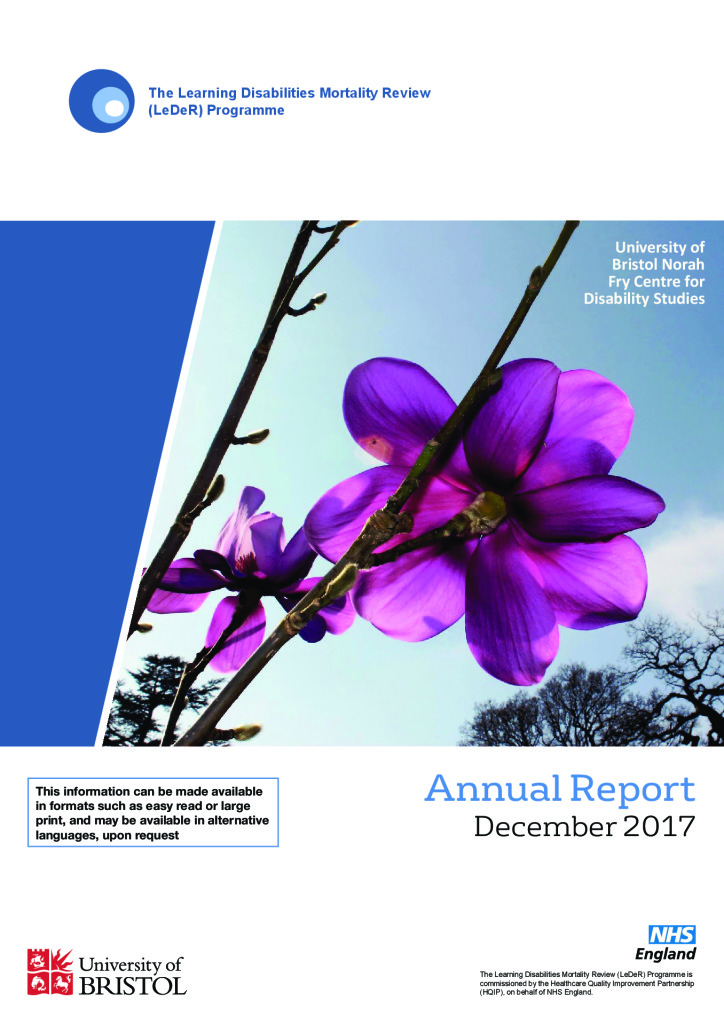The Learning Disabilities Mortality Review Annual Report 2017
The Learning Disabilities Mortality Review (LeDeR) programme was established to support local areas to review the deaths of people with learning disabilities, identify learning from those deaths, and take forward the learning into service improvement initiatives. It is being implemented at the time of considerable spotlight on the deaths of patients in the NHS, and the introduction of the national Learning from Deaths framework in England in 2017. The programme is led by the University of Bristol and commissioned by the Healthcare Quality Improvement Partnership (HQIP) on behalf of NHS England.
The programme has developed a review process for the deaths of people with learning disabilities. All deaths receive an initial review; those where there are any areas of concern in relation to the care of the person who has died, or if it is felt that further learning could be gained, receive a full multi-agency review of the death. Deaths subject to the current priority review themes (aged 18-24years or from a Black or minority ethnic background) receive multiagency review and expert panel scrutiny. At the completion of the review, an action planning process identifies any service improvements that may be indicated.
From 1st July 2016 to 30th November 2017, 1,311 deaths were notified to the LeDeR programme. The most frequent role of those notifying a death was Learning Disability Nurse (25%), most commonly working in a Community Learning Disabilities Team.
Key information about the people with learning disabilities whose deaths were notified to the LeDeR programme includes:
- Just over half (57%) of the deaths were of males
- Most people (96%) were single
- Most people (93%) were of White ethnic
background - Just over a quarter (27%) had mild learning disabilities; 33% had moderate learning disabilities; 29% severe learning disabilities; and
11% profound or multiple learning disabilities. - Approximately one in ten (9%) usually lived alone
- Approximately one in ten (9%) had been in an out-of-area placement
To download the full 2016/17 annual report click on the link below


